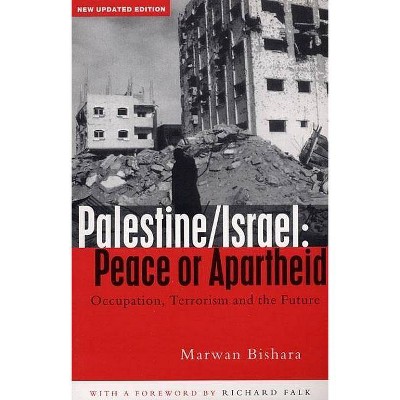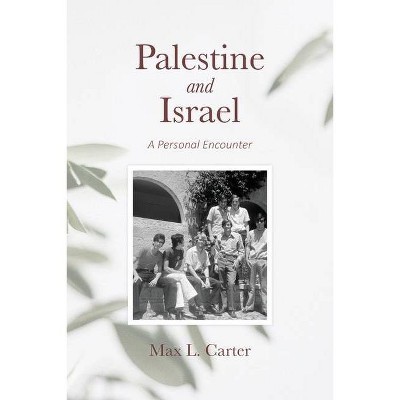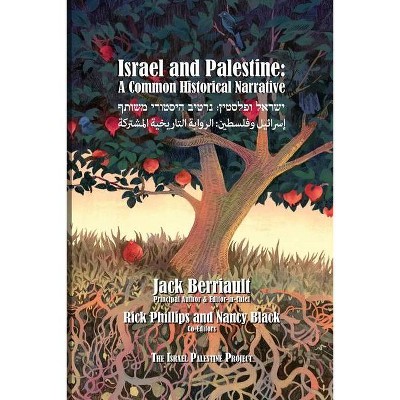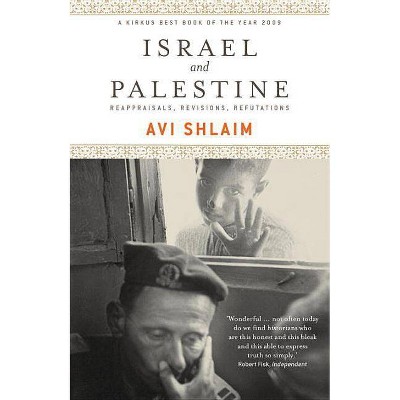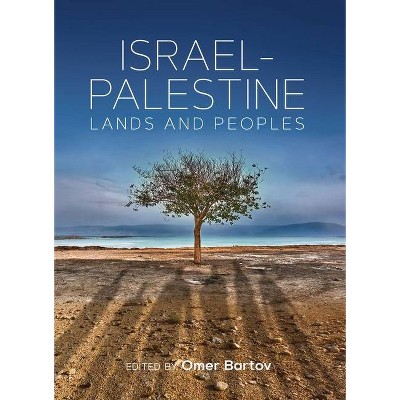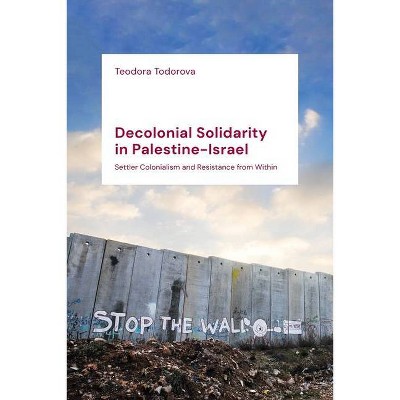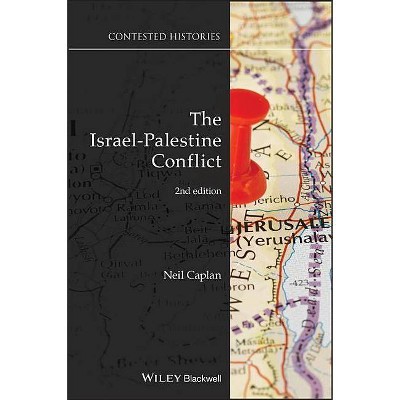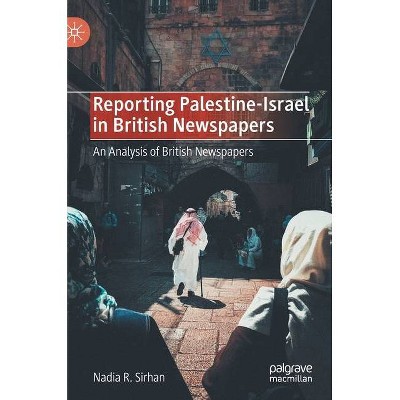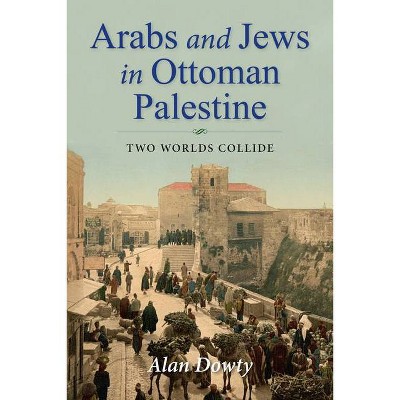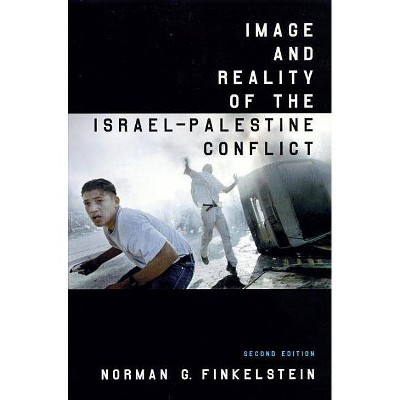Israel/Palestine - by Drew Paul (Paperback)
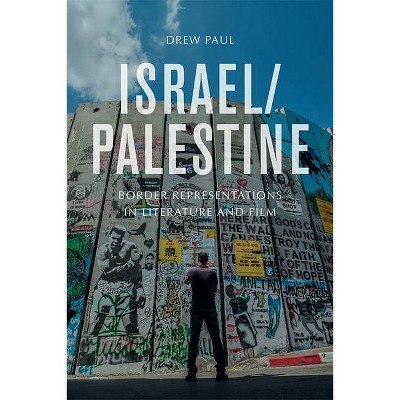
Similar Products
Products of same category from the store
AllProduct info
<p/><br></br><p><b> About the Book </b></p></br></br><p>Since the early 1990s, Israel has greatly expanded a system checkpoints, walls and other barriers in the West Bank and Gaza that restrict Palestinian movement.<em> Israel/Palestine</em> examines how authors and filmmakers have grappled with the spread of these borders. </p><p/><br></br><p><b> Book Synopsis </b></p></br></br><p>Since the early 1990s, Israel has greatly expanded a system checkpoints, walls and other barriers in the West Bank and Gaza that restrict Palestinian movement. <em>Israel/Palestine</em> examines how authors and filmmakers have grappled with the spread of these borders. </p> <p></p> <p>Focusing on the works of Elia Suleiman, Raba'i al-Madhoun, Ghassan Kanafani, Sami Michael and Sayed Kashua, it traces how political engagement in literature and film has shifted away from previously common paradigms of resistance and coexistence and has become reorganised around these now ubiquitous physical barriers. Depictions of these borders interrogate the notion that such spaces are impenetrable and unbreakable, imagine distinct forms of protest, and redefine the relationship between cultural production and political engagement.</p><p/><br></br><p><b> From the Back Cover </b></p></br></br>'Israel/Palestine offers an important contribution to the ever-growing literature on borders and border cultures. Focusing on Israeli and Palestinian cinematic and literary representations of borders, Paul revisits the figure of the border both as a physical device of immense and grave consequences, and as a fictional site of collective imagination open to destabilisation. Exploring this double nature of the border, this wellwritten and insightful book manages to advance a much-needed cultural and political perspective; at once sober and optimistic!' Gil Z. Hochberg, Ransford Professor of Hebrew, Columbia University, New York EXPLORES HOW THE EXPANSION OF BORDER SPACES SHAPED CONTEMPORARY PALESTINIAN AND ISRAELI LITERATURE AND FILM Since the early 1990s, Israel has greatly expanded a system of checkpoints, walls and other barriers in the West Bank and Gaza that restrict Palestinian movement. Israel/Palestine examines how authors and filmmakers have grappled with the spread of these borders. Focusing on the works of Elia Suleiman, Rabaʿi al-Madhoun, Ghassan Kanafani, Sami Michael and Sayed Kashua, it traces how political engagement in literature and film has shifted away from previously common paradigms of resistance and coexistence and has become reorganised around these now ubiquitous physical barriers. Depictions of these borders interrogate the notion that such spaces are impenetrable and unbreakable, imagine distinct forms of protest, and redefine the relationship between cultural production and political engagement. DREW PAUL is Assistant Professor of Arabic at the University of Tennessee, Knoxville, where he is chair of the Arabic and Hebrew programs, and core faculty in Middle East Studies and Cinema Studies. His research interests include issues of space, borders, mobility and sexuality.<p/><br></br><p><b> About the Author </b></p></br></br><p>Drew Paul is an Assistant Professor of Arabic at the University of Tennessee, Knoxville. His work appeared in a number of key journals, including The Journal of Arabic Literature, Alif, and Scritture Migranti/Migrant Writings. Israel/Palestine is his first book.<p>
Price History
Price Archive shows prices from various stores, lets you see history and find the cheapest. There is no actual sale on the website. For all support, inquiry and suggestion messages communication@pricearchive.us
